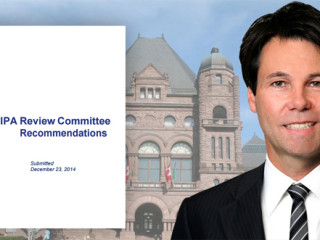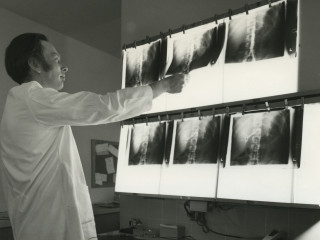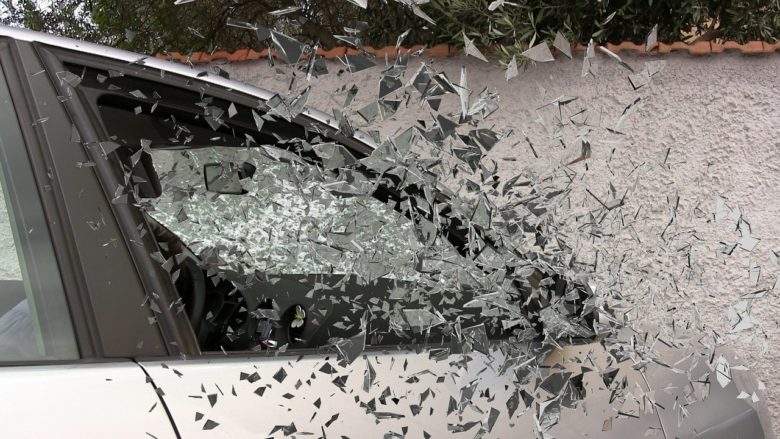Full Decision
Material Facts:
This action arises out of a motor vehicle accident which took place on or about October 10, 2013. The respondent (plaintiff) was driving at the time of the accident, and his wife and three sons were passengers in his vehicle.
The respondent commenced this action by a statement of claim that was issued on November 12, 2014. In April 2018, more than four years after the date of loss, the respondent (plaintiff) brought a motion for an order for leave to amend his statement of claim to add a claim for damages pursuant to s. 61 of the Family Law Act, RSO 1990, c. F.3 (“FLA”), including damages for:
(a) out-of-pocket expenses incurred for the benefit of his three children;
(b) a reasonable allowance for loss of income and the value of other services rendered to his three children; and
(c) the loss of care, guidance and companionship reasonably expected to be received from his three children had the defendants’ negligence not occurred.
Master Wiebe, on hearing the motion, indicated that he is bound by Bazkur v. Coore, 2012 ONSC 3468 (“Bazkur”) as a matter of stare decisis and, therefore, he granted the respondent’s motion with written reasons to follow. The Master’s written reasons held that the facts in Bazkur were very similar to the case at hand, the defendant’s cases all had distinguishing features and did not conflict with the Bazkur decision, and lastly that he is bound by the decision of the judge in Bazkur.
Bazkur held that FLA claims are derivative in nature from the underlying claim of an injured family member, and are considered a head of damages, not a new cause of action; therefore, as long as the underlying claim is commenced in time, an FLA claim can be added to the action even after the expiry of the two year limitation period.
Master Wiebe granted the respondent (plaintiff) leave to amend the statement of claim. The appellant (defendant) appealed the interlocutory order.
Issues:
On appeal in this case, Justice Cavanagh considered whether an amendment to a statement of claim to plead damages pursuant to s. 61 of the FLA is an amendment to plead a new statutory cause of action, or, an amendment to plead an additional remedy for a cause of action in negligence which was already pleaded.
Ratio:
Ultimately, the court found even though the direct claim and the FLA derivative claim flow from the same acts or omissions, these claims arise as a result of different causes of action. As a separate statutory cause of action, an FLA claim is subject to the two-year limitation period.
Analysis:
The appellant argued that the requested amendments to the statement of claim should not be allowed because they constitute a new statutory cause of action and are sought after the applicable two-year limitation period had expired.
The respondent argued that the amendments simply claim an additional remedy in damages under s. 61 of the FLA for the same tort of negligence in the operation of a motor vehicle. Further, the Master made his decision in accordance with Bazkur, the established jurisprudence which he was bound to follow.
Section 61 of the FLA provides that dependants (spouse, children, grandchildren, parents, grandparents, brothers and/or sisters) of a party that is injured or killed by the fault or neglect of another is entitled to recover pecuniary losses that flow from that family member’s death or injury. Section 61(2) defines the specific pecuniary damages recoverable in such a claim. Lastly, s. 61(3) provides that the right to damages is subject to any apportionment of damages due to the contributory fault or neglect of the person who was injured or killed.
In Camarata v. Morgan, 2009 ONCA 38 (CanLII), the Court of Appeal for Ontario confirmed that an FLA claim under s. 61 is separate from his or her direct claim, if there is one, against the alleged wrongdoer. In the present appeal, Justice Cavanagh clarified that it is immaterial that the same acts and omissions are relied upon in both the direct claim and the derivative claim, because the claims arise from legally separate causes of action.
Justice Cavanagh noted the plaintiff’s direct cause of action in the original statement of claim was based on a breach of the duty of care owed to the plaintiff, and the second, derivative FLA claim arising from a statutory cause of action in the proposed amendment, was based on damages to the plaintiff’s children caused by the fault or neglect of the defendant.
Justice Cavanagh concluded that the decision in Bazkur that held that the plaintiff’s FLA claim was only a head of damages and did not raise a new cause of action was “plainly wrong” and as such, the Master’s decision which followed the Bazkur decision was incorrect.
Decision:
Justice Cavanagh allowed the present appeal, finding that the plaintiff’s FLA claim was statute-barred because it is a new cause of action and must be brought within the limitation period. He set aside the Master’s order, and in its place, made an order dismissing the respondent’s motion for leave to amend the statement of claim to add the FLA claim.
Costs were fixed in the amount agreed upon.










